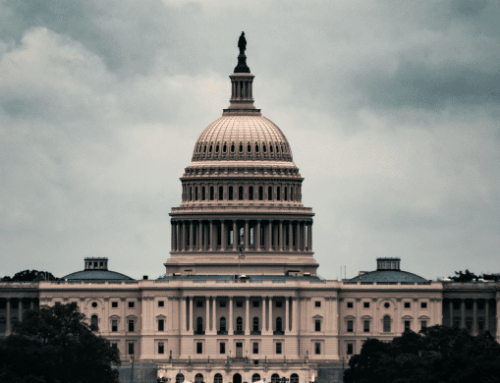Today, the House of Representatives passed the Fiscal Year 2025 Pentagon spending bill with a vote of 217-198, appropriating $833 billion for the Pentagon and intelligence agencies. Lawmakers addressed a host of policies, some of which were included in the bill and some that were not.
The House Rules Committee included 193 amendments to the bill in its rule governing debate, most of which passed en bloc, meaning as part of a package of amendments that received a single vote.
Within those en bloc packages, lawmakers passed 179 separate program increases to the Pentagon budget, offset by corresponding cuts. These amendments received virtually no debate on the House floor and were passed by voice vote, leaving no public record of how individual lawmakers voted. As we catalogue these increases in the Pentagon’s procurement and research accounts in the FY25 budget, we’ll add them to our database of Congressional Pentagon Budget Increases so you can see exactly where Congress is directing your tax dollars.
Among standalone amendments, one key measure we supported would have prohibited funding for the Pentagon’s unfunded priorities lists (UPLs), unbudgeted wish lists that Congress requires military service leaders and combatant commanders to submit each year. Unfortunately, it failed by a vote of 161-251 (you can follow the link to see how your Representative voted). However, the strong bipartisan support, with 129 Democrats and 32 Republicans voting for the amendment, means this effort is not going away anytime soon.
As we wrote in our letter supporting this amendment, unfunded priorities lists fuel wasteful spending and often end up shortchanging the Pentagon’s actual priorities that are included in its budget request to Congress. They also erode civilian control of the military, a foundational precept of our Democracy, by forcing military leaders to circumvent the Pentagon’s civilian leadership.
As Rep. Pramila Jayapal (D-WA), the lead sponsor of the bill, explained on the House floor:
These wish lists are packed with billions of dollars of excessive line items, this year totaling more than $27.5 billion… a 50 percent increase from last year… These lists get in the way of our military’s stated priorities. For example, the House passed NDAA authorized funding for some of the Army’s unfunded priorities while making substantial cuts to the requested amounts for the Army’s three largest accounts. This is despite Army Chief of Staff General Randy George specifically requesting that none of the Army’s unfunded priorities displace anything on the Army’s Fiscal Year 2025 budget request.
Despite the defeat of this amendment, we will continue to push for an end to these unbudgeted wish lists.
Another amendment we opposed would block the implementation of a rule proposed by the Federal Acquisition Regulation (FAR) Council requiring major federal contractors to report on emissions and climate-related financial risk and set science-based emissions reduction targets. The amendment passed by a vote of 211-199. As we wrote last year in opposition to a similar amendment, this rule is essential for addressing the national security risks posed by climate change.
Speaking in opposition to the amendment on the House floor, Rep. Ed Case (D-HI) had this to say:
This amendment at the end of the day is grounded in the incorrect assumption that a strong defense industrial base is fundamentally incompatible with cleaner sustainable energy and climate resiliency. That is not correct, we know that, and the Department of Defense knows that. And the Department of Defense moreover knows that if we don’t address climate-related risk around the world in all parts of its operations from operations to readiness to procurement, that it faces greater risk.
We’ll be pushing for the Senate to reject this head-in-the-sand provision when they conference their version of the bill with the House’s version.
A second amendment we opposed sought to prevent the retirement of any Air Force fighter aircraft until the Secretary of the Air Force submits a fighter recapitalization plan. This amendment was the latest in a long line of efforts in Congress to interfere with the Pentagon’s ability to retire systems that are aging or that are no longer necessary to support national security needs. Thankfully, the amendment was not ultimately offered on the House floor.
Next up in the world of Pentagon budgeting, the Senate is expected to take up its version of the Pentagon spending bill sometime next month. We’ll be watching closely, sharing our recommendations with Congress, and reporting the results, so stay tuned.










